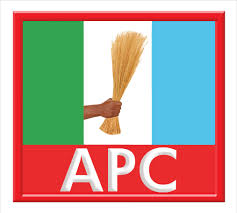"When two elephants fight, it is the grass that suffers" – African proverb
A merger of key opposition parties in Nigeria under the new name All Progressive Congress (APC) was recently approved by the nation's electoral agency – the Independent National Electoral Commission ahead of the 2015 polls, and amidst huge celebrations. This approval however, is depicted by many in the political clout and mainstream media (national and international) as an opportunity for the opposition to present a fierce challenge to the ruling People's Democratic Party (PDP), hence, effectively drawing attention away from relevant expectations of the new party regarding proactive policies on improving the socio-economic condition of Nigeria and Nigerians at large.
While the notion of having an equally strong political party alongside the ruling party at the polls provides formidable choices for the average voter, developing and educating the people on their strategic action economic plans and policies should take the front seat rather than setting a stage for a traditional political battle between two elephants which more than often leaves the grass in pains.
The ruling People's Democratic Party has been at the helm of political authority since the transition of the nation from military rule into democracy in 1999, holding on to power with a mass influence among the populace despite proofs of electoral fraud and incessant massive corruption.
Under the leadership of the PDP in the last 14 years, the country has witnessed an increased spate of corruption among public officials in an escalated level, the peak of which was unveiled in the fuel subsidy probe where government officials collide with phony oil marketers to rid the nation in excesses of trillions of Naira.
The effect of this corrupt leadership is evident in the rising level of poverty and the people where a sizable percentage of the population live under $2 per day. The level of insecurity in the country is at an all time alarming level as Islamic extremists continue to wreck havoc on lives and properties in the Northern region of the country. Similar militant activities have been observed in the past in southern Nigeria marked by kidnappings for ransoms and targeting expatriate workers in the oil sector.
Despite this sore level of corruption, Nigerians are considered as relatively hard working people with enviable entrepreneurial energy. However, this energy failed to translate into profitable small and medium enterprise operations due to the extreme difficulty of doing business in Nigeria. The World Bank produced 2012 Ease of Doing Business Index rates Nigeria at number 131 out of 185 sampled economies.
What Nigeria and Nigerians desperately need at this moment is not a battle of political parties for political authorities, but realizable footprints showcasing dedication to the principles and ideas that enrich peace, freedom and prosperity.
The newly approved party might want to focus on championing ideas that promote accountable governance by cutting the extraordinary cost of governance, advance the idea of a government that is capable of productively tackling corruption and providing a genuine platform for socio-economic development through the institution of sound institutions that enhance property rights, ease of doing business, the rule of law, the security and protection of the life, liberty and the pursuit of happiness of its citizens.
Should the merger translate into occupying positions of central political authority in the near future, the credibility of these new leaders will remain under a watchful light as to whether it will hold to the alluring lust of the expensive democracy which has proved to lack tangible socio-economic results. Relatively, APC's readiness at nation building will be tested against the distractions of political wrangling which more often than not leaves the electorates with no gain, but pain.
Fiyinfoluwa Elegbede wrote in from the United States


